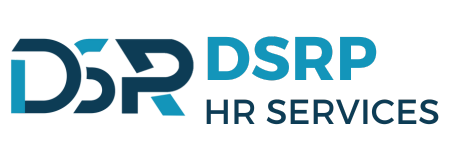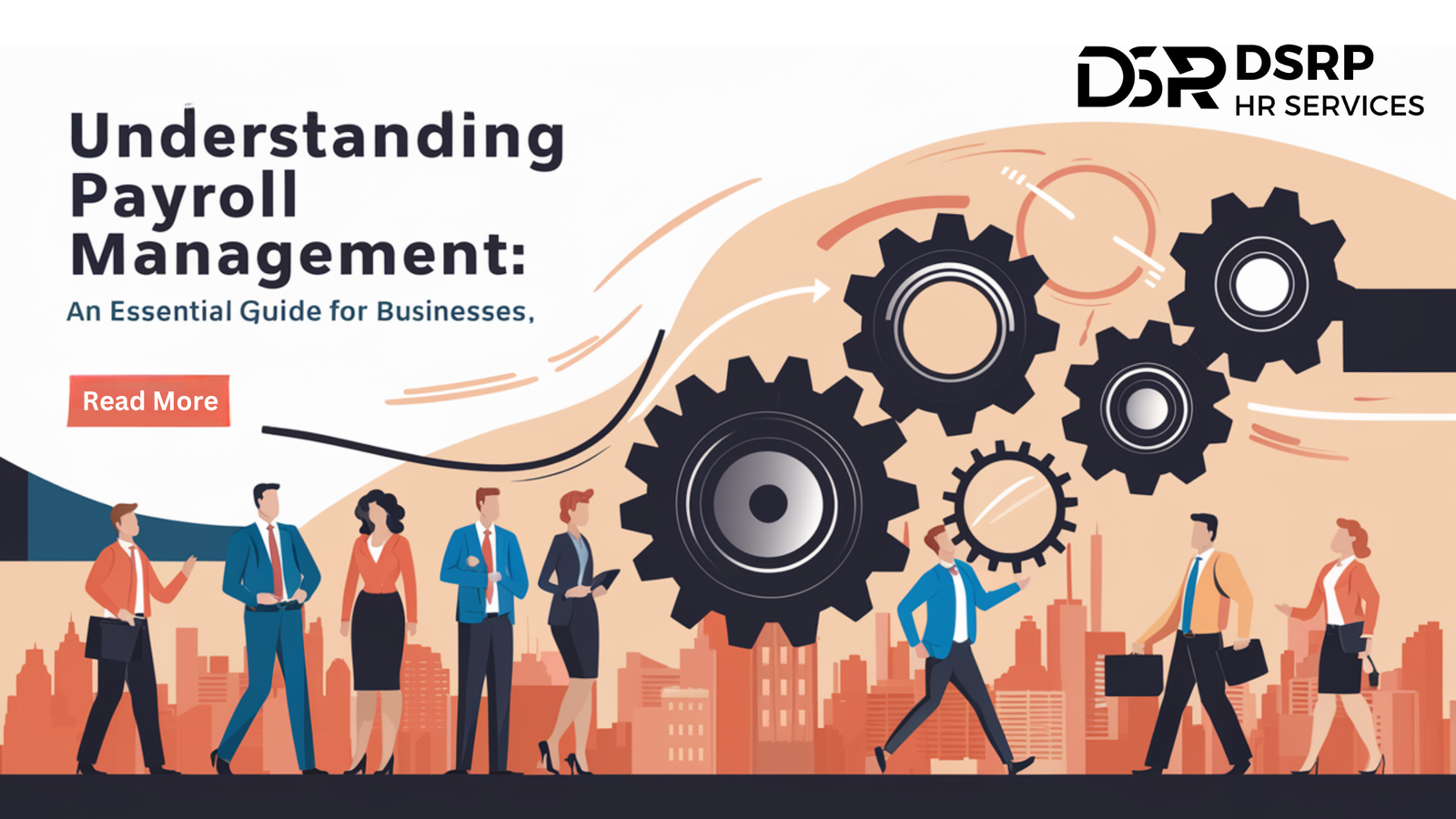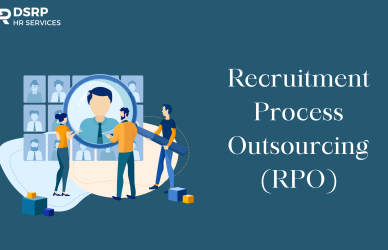In the dynamic world of business, payroll management stands as a critical function, integral to the smooth operation and financial health of any organization. At DSRP HR Services, we understand the complexities and importance of effective payroll management. This guide aims to elucidate the intricacies of payroll management, its benefits, challenges, and the role it plays in fostering a productive and compliant workplace.
What is Payroll Management?
Payroll management involves the administration of a company’s employee financial records, including salaries, wages, bonuses, deductions, and net pay. This process ensures that employees receive their appropriate compensation accurately and on time. Beyond mere payment processing, payroll management encompasses compliance with labour laws, tax regulations, and company policies.
Key Components of Payroll Management
1. Employee Information Management: Collecting and maintaining accurate employee data such as personal details, job titles, salaries, and tax information.
2. Time and Attendance Tracking: Recording hours worked, leaves taken, and overtime to ensure accurate salary calculations.
3. Salary and Wage Calculation: Computing gross pay based on hours worked or a set salary, including bonuses, commissions, and other compensation forms.
4. Deductions Management: Managing statutory deductions like taxes, social security, health insurance, and voluntary deductions such as retirement contributions.
5. Compliance and Reporting: Ensuring adherence to local, state, and federal regulations, including timely filing of taxes and other mandated reports.
6. Payroll Distribution: Disbursing salaries through direct deposits, checks, or other payment methods.
7. Record Keeping: Maintaining detailed and accurate payroll records for future reference and audits.
Benefits of Effective Payroll Management
1. Accuracy and Timeliness
Accurate payroll management ensures that employees are paid correctly and on time, which is crucial for maintaining morale and trust within the workforce. Errors in payroll can lead to dissatisfaction, decreased productivity, and even legal complications.
2. Compliance with Regulations
Payroll management involves staying updated with ever-changing labour laws and tax regulations. Non-compliance can result in hefty fines and legal issues. An effective payroll system helps businesses stay compliant, avoiding potential legal pitfalls.
3. Financial Planning and Budgeting
Accurate payroll data provides valuable insights into the company’s financial health, aiding in effective budgeting and financial planning. It allows businesses to forecast labour costs and allocate resources efficiently.
4. Improved Employee Satisfaction
Timely and accurate payroll processing enhances employee satisfaction and retention. Employees who trust their employers to manage their earnings correctly are more likely to remain loyal and motivated.
5. Time and Cost Efficiency
Automating payroll processes reduces the time and effort required for manual calculations and paperwork. This efficiency translates into cost savings, allowing HR teams to focus on more strategic initiatives.
Challenges in Payroll Management
Despite its importance, payroll management can be fraught with challenges:
1. Keeping Up with Regulations
Tax laws and labour regulations are continually evolving. Keeping up with these changes and ensuring compliance can be daunting, especially for small businesses without dedicated HR teams.
2. Data Accuracy
Maintaining accurate employee data is critical. Errors in employee records can lead to incorrect payments and compliance issues.
3. Integration with Other Systems
Integrating payroll systems with other HR and accounting software can be complex. Seamless integration is necessary for efficient data flow and reporting.
4. Security Concerns
Payroll data is sensitive, containing personal and financial information. Ensuring the security of this data against breaches and unauthorized access is paramount.
5. Handling Diverse Payroll Needs
Different employees may have varying payroll needs, such as different pay cycles, bonuses, and deductions. Managing these complexities requires a flexible and robust payroll system.
The Role of Technology in Payroll Management
Modern technology plays a pivotal role in streamlining payroll management. Payroll software automates many aspects of the process, reducing the risk of errors and ensuring compliance. Here are some ways technology enhances payroll management:
1. Automation: Automating repetitive tasks such as salary calculations, tax deductions, and report generation saves time and reduces the likelihood of human error.
2. Cloud-Based Solutions: Cloud-based payroll systems offer real-time access to payroll data, ensuring that information is always up-to-date and accessible from anywhere.
3. Integration: Advanced payroll software can seamlessly integrate with other HR and accounting systems, facilitating smooth data exchange and comprehensive reporting.
4. Employee Self-Service Portals: These portals allow employees to access their payroll information, submit timesheets, and update personal details, reducing the administrative burden on HR teams.
5. Data Security: Modern payroll systems incorporate robust security measures to protect sensitive payroll data from breaches and unauthorized access.
Choosing the Right Payroll Management System
Selecting the right payroll management system is crucial for optimizing payroll processes. Here are some factors to consider:
1. Scalability: The system should be able to grow with your business, accommodating an increasing number of employees and more complex payroll needs.
2. User-Friendly Interface: A user-friendly interface ensures that HR teams can easily navigate and use the system without extensive training.
3. Comprehensive Features: Look for features such as automated tax calculations, compliance management, reporting capabilities, and integration options.
4. Customer Support: Reliable customer support is essential for addressing any issues or queries that may arise.
5. Cost-Effectiveness: Evaluate the cost of the system relative to its features and the value it provides to your business.
Conclusion
Effective payroll management is vital for the success of any organization. It ensures accurate and timely compensation, compliance with regulations, and provides valuable financial insights. At DSRP HR Services, we are committed to helping businesses navigate the complexities of payroll management with ease. By leveraging modern technology and adopting best practices, companies can streamline their payroll processes, enhance employee satisfaction, and focus on their core business objectives.
For more information on how DSRP HR Services can assist you with your payroll management needs, contact us today. Let us help you achieve payroll efficiency and compliance, allowing you to concentrate on growing your business.
Contact No.: 8080803153
Mail Id.: info@dsrpjobs.com





